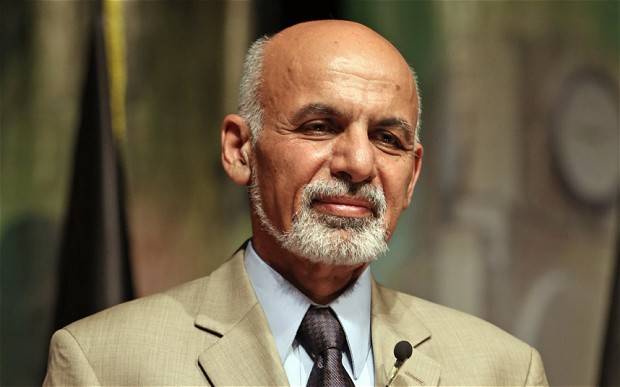The fast changing scenario in Afghanistan gives one hope that the post 1990 conspiracies which tormented the Afghans might not be repeated as foreign occupation is vacated. Therefore, the factors determining the destiny of Afghanistan need to be analysed, keeping in mind the conspiracies of the past which prevented a peaceful transfer of power after the Soviet retreat. That led to a civil war, which threw up the Taliban as redeemers, but they were cut down by the invading forces in 2001. Then followed the thirteen year war of occupation, which prevented the Afghans from forming a government of their choice. The recently held Heart of Asia Conference at Beijing sets its sights on the future and identifies the factors which could usher Afghanistan into a new era of peace and stability. The factors under focus are:
The Taliban have emerged as the winners and have shown serenity of judgment. They are prepared to negotiate peace, with the new Unity government of Ashraf Ghani
An Intra-Afghan Dialogue that was held in Paris, in December 2012, at the Foundation for Strategic Research, where the participating Taliban; Northern Alliance and the representatives of President Karzai chartered a peace process road-map to 2015, envisaging a role for Pakistan supported by the United States. They also resolved “to remain united, working for a broad-based government, for peace in Afghanistan.” This is the on-going process now.
The new Afghan government, under President Ashraf Ghani, has taken positive steps, confirming the decisions taken by the 2012 High Peace Council at Paris.
President Ashraf Ghani has declared that the future of Afghanistan will be decided in a very selective manner and in close coordination with its six neighbors of the Inner-Circle – namely Pakistan, Iran, China, Russia and the Central Asian countries. All others are expected to support his initiative.
The Pak-Afghan historical and civilizational bondages are emerging stronger, and reject the machinations of outsiders into the affairs of the two countries.
The United States has shifted its Strategic Pivot to the Asia Pacific region. It has reconciled to the emerging changes in Afghanistan and particularly supports Ashraf Ghani’s concept of Unity at the Heart of Asia, and his initiative to forge closer relations with Pakistan. India gets a new role as a leading partner in the Asia-Pacific Coalition against China, same as Israel has a role in the Middle East.
These are the positive signs which promise peace and stability in Afghanistan that will extend beyond to Pakistan, to bring an end to state sponsored terrorism on Afghan soil. And with this will come to an end the US obsession to establish India as the dominant power, from Kabul to Dacca. Thus, the immediate neighbors of Afghanistan, of the First Circle, have a common cause of establishing regional peace, to provide a much needed balance of power in the Heart of Asia region.
Pakistan’s foreign policy determinants are being set forth in a style and manner which is not apologetic any more. General Raheel rushed to Kabul to tell the Indians to wind up their conspiracy network operating against Pakistan since 2005 and to curb Pakistani terrorists operating from Afghan soil. He went to United Kingdom to tell them that it was not the first time that the ‘London Plan’ has emerged from their soil and that there was solid proof that Pakistani dissident groups were being harboured and funded by sources in the United Kingdom. Earlier, he spent two weeks in the United States explaining to them the emerging realities in the Heart of Asia and Pakistan’s concerns about the security challenges to the country.
The Americans don’t seem to have a foreign policy of their own. John Kerry visited Pakistan and his foreign policy initiatives appeared fully subdued and supportive of India on the issue of Kashmir. Regarding Afghanistan, he repeated the old demand, “do-more” against Haqqani network and Afghan Taliban. Yet it is time that the United States adopt a policy in harmony with the emerging realities in the region. The war on terror is also approaching a decisive end and Pakistan’s objectives will soon find harmony with the foreign policy objectives of the countries of the First Circle. That is a big step forward.
Saturday, April 20, 2024
Unity At The Heart of Asia

The writer is a former COAS, Pakistan. He can be reached at friendsfoundation@live.co.uk
Policitising Tragedy
April 20, 2024
Tehran to Rafah
April 20, 2024
A New Leaf
April 20, 2024
A Tense Neighbourhood
April 19, 2024
Dubai Underwater
April 19, 2024
Dangers of Deepfakes
April 20, 2024
Feudalism
April 20, 2024
Kite tragedy
April 19, 2024
Discipline dilemma
April 19, 2024
Urgent plea
April 19, 2024
ePaper - Nawaiwaqt
Advertisement
Nawaiwaqt Group | Copyright © 2024





